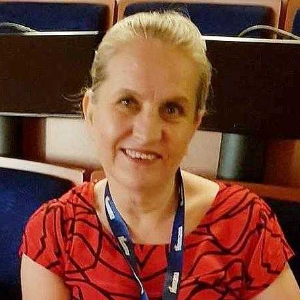Title : The importance of evaluation of growth and development in children in chronic diseases
Abstract:
Growth is the increase in body volume and mass due to the increase in cell number and size. Growth is determined in the intrauterine period by gender, intrauterine environment, intrauterine infections, maternal chronic diseases, genetic factors, chromosomal diseases, skeletal dysplasias, hormones and growth factors. Growth after birth is determined by chronic diseases of the child, genetic factors, nutrition, metabolic factors, hormones and psychosocial factors. Growth monitoring is defined as the evaluation of the child's growth at regular intervals with the help of appropriate standard growth curves, early identification of deviations from normal and taking precautions. According to the World Health Organization, the growth of every child under the age of five in developing countries should be monitored, especially in the first three years. It is defined as monitoring the growth of the child by making certain anthropometric measurements at regular intervals and processing them into standard growth curves. Anthropometry is a technique that deals with the dimensions of the human body. It is derived from the Greek words anthropo (human) and metricos (measure). This follow-up begins at birth and is routinely repeated at regular intervals throughout childhood. Since children are constantly growing and developing organisms, all kinds of factors that impair their health can slow down or stop their growth and development processes. Slow but continuous declines from the normal growth curve or plateauing of the normal growth curve indicate that the patient has a chronic disease or malnutrition that causes growth interruption.
Some inherited or acquired diseases in a healthy baby can become chronic and can negatively affect the growth and development process. Chronic disease is defined as a condition that occurs as a result of a combination of genetic, physiological, environmental and behavioral factors, usually lasting for one year or longer, requiring continuous medical intervention and limiting activities of daily living. The daily needs of children with chronic diseases may differ from their healthy peers. In addition to the characteristic findings of heart disease, secondary problems brought by the disease are of great importance in children with heart disease. The important complication seen in heart diseases is growth and developmental retardation. Growth retardation that cannot be detected in the early period causes delay in correction surgeries and even the risk of death after surgery. Children with heart disease have malabsorption due to insufficient caloric intake. This situation causes growth retardation in children. Children and adolescents with chronic diseases, biomedical or psychosocial risks need more frequent and sensitive supervision.
Early detection and early intervention of risk factors associated with Growth and Developmental Delay is the most important milestone for quality of life and ensuring that the child reaches the optimal capacity in adulthood. The treatment of the detected cause is essential in children with growth retardation. Protecting and improving child health and providing appropriate care during illness are possible with knowledge of growth and development.
Key Words: Child Health and Disease Nursing, chronic diseases, growth and development.
Audience Takeaway:
- Understanding the importance of regular monitoring of growth and development in children
- Understanding what growth and development is, how it is assessed, and why nurses need to know
- To learn the importance of monitoring growth and development in children with chronic diseases.



